What vinegar to use for cleaning – which type to use for each task
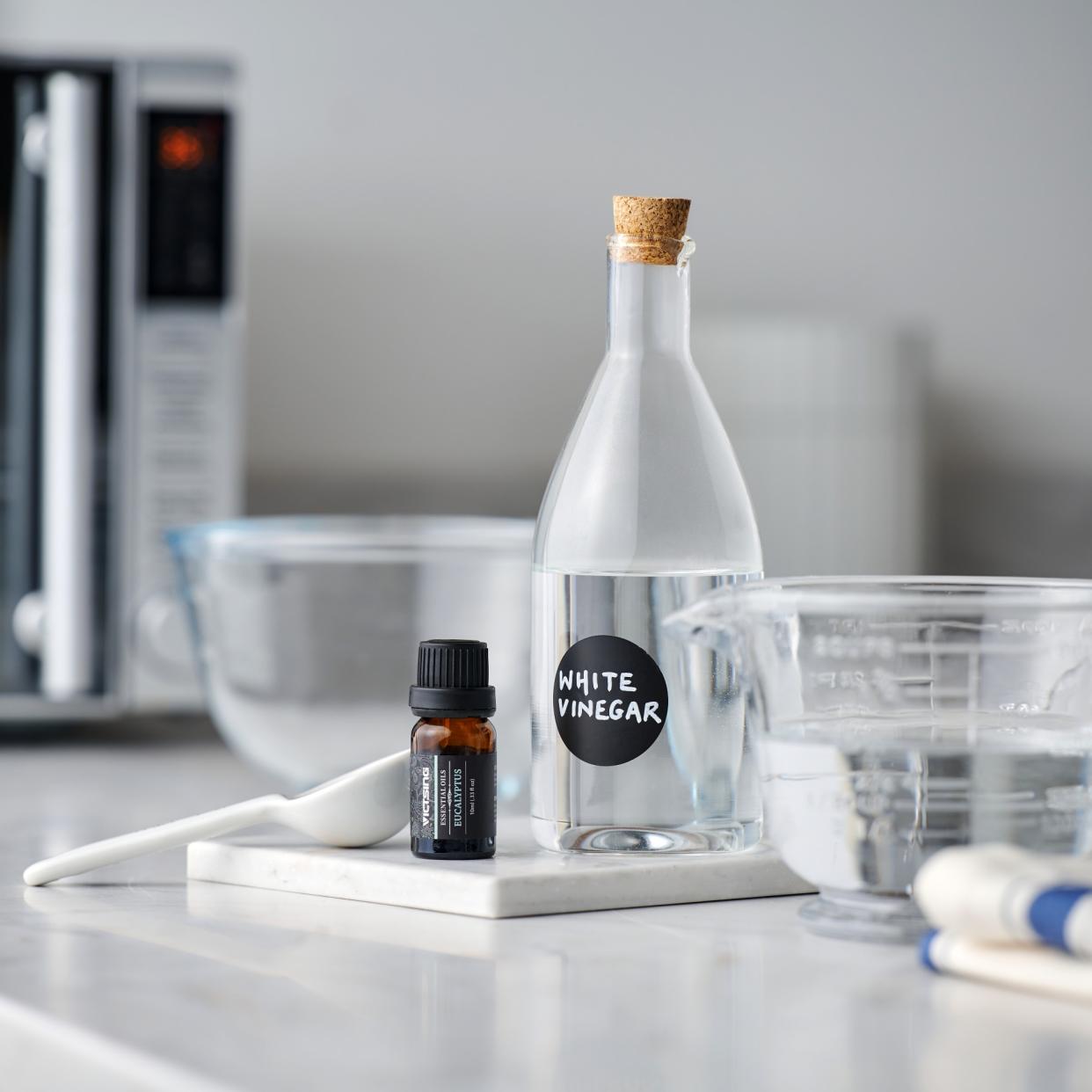
We're all about a natural cleaning hack, but how do you know what vinegar to use for cleaning? Look around the supermarket aisles or your kitchen cupboards and you'll doubtless feel overwhelmed by the range of vinegars and wondering which to pick up.
A lot of natural cleaning methods involve vinegar in one form or another, but they don't always specify the type. In fact, this writer recalls a "friend" mistakenly using malt vinegar in an attempt to descale a kettle as it was the only thing to hand. You can imagine how long it took to get things to stop smelling like a fish and chips shop...
To save anyone else from making the same mistake, we've gone to the cleaning experts to nail down exactly what vinegar to use for cleaning – and how to use them for the best results.
What vinegar to use for cleaning
Why is it that we gravitate to using vinegar, anyway? 'You probably already have vinegar sitting in your pantry, so you are probably already familiar with how powerful it is as a multipurpose cleaner,' notes Nigel Bearman, CEO of domestic cleaning specialists Daily Poppins.
'Cleaners that are multipurpose have the benefit of being able to be used on a variety of surfaces, which is convenient. Although these cleaners may be effective, some of them are not exactly safe for the environment or healthy for the body. Meanwhile, vinegar is non-toxic and eco-friendly, making it the ultimate multi-purpose cleaning solution due to its non-toxic nature and eco-friendliness. It is also extremely affordable.'
Ok, so there you have it – vinegar should be one of your go-to cleaning products. Right, now let's work through what vinegar you can use for cleaning and in what circumstances.
Distilled white vinegar

When you think of cleaning with vinegar, chances are that you'll think of white vinegar – and you'd be right. This product might be basic, but it does its job well.
'White distilled vinegar is one of nature’s greatest natural cleaning tools, and it can be used for all kinds of household tasks,' notes Sue Caldwell, ambassador for Clean Living International. 'Its high acidic content means it is great at neutralising odours and fighting bacteria, so always keep a bottle in the cupboard.'
'Since white distilled vinegar does not contain any colouring agents, it is one of the best vinegars to use when cleaning,' adds Nigel from Daily Poppins. 'Due to the lack of colour, surfaces will not be stained. There is a possibility that staining can occur when you use a darker-coloured vinegar when cleaning.'
'This is great for cutting through grease, removing stains, and deodorising certain items around the house,' agrees cleaning expert Emma Rostron from One Less Thing. 'Best of all, it is completely safe to use on most surfaces, including worktops, glass, and even floors whether hardwood, laminate or tile.'
'Its uses really are endless - you can descale your kettle by filling it with half water and half distilled white vinegar, boiling it a few times and rinsing well. You can give wooden spoons a deep clean by adding a cup full to a jug of boiling water and leaving them to soak in the mixture,' Sue recommends. 'You can even add a cup full to clean your washing machine by helping fight bacteria and odours that might be lingering on laundry.'
Cleaning vinegar
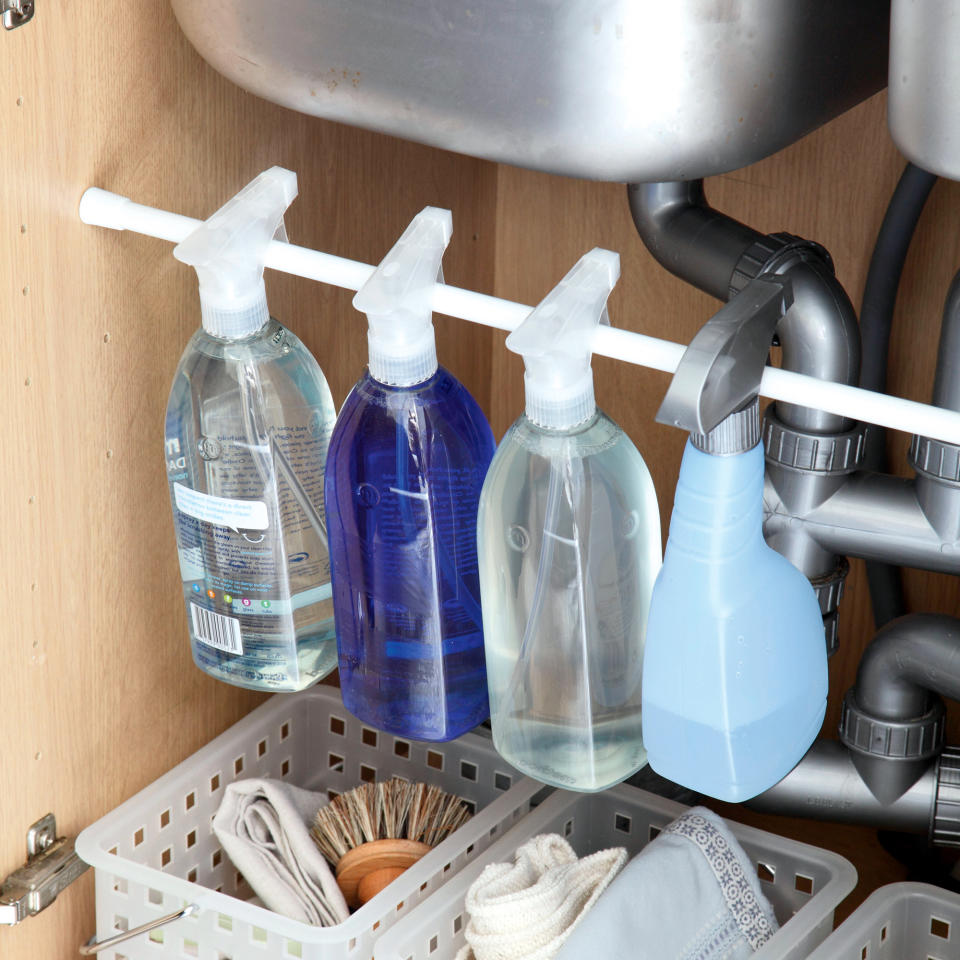
The title may be a slight give away with this one but, unsurprisingly, when choosing what vinegar to use for cleaning then you shouldn't bypass the aptly named cleaning vinegar.
Cleaning vinegar, also known as concentrated vinegar is a strong cleaner. 'White vinegar is usually 95% water and 5% acid. By contrast, cleaning vinegar contains up to six% acid and is around 20% stronger overall than regular white vinegar,' explains Laura Harnett, founder of eco cleaning tools brand Seep. 'That means it can help you power through some tough household chores with a lot less hassle — and less muscle!'
'It’s great for cleaning as it is eco-friendly, safe, powerful and relatively inexpensive,' adds Amanda Lewis, marketing director at Elbow Grease. 'You can use it on your kitchen counters, floors, and bathrooms. For some surfaces, such as mirrors and glass, mix it with water first, as concentrated vinegar can be too harsh for some surfaces to use neat.'
'A good ratio to use for most cleaning purposes is one part vinegar to one part water,' continues Amanda. 'If mixing with water, you can also add in some drops of your favourite essential oils to create a great-smelling cleaning product.'
'However white or distilled vinegar is a better option for your glass,' notes Jo Trotman, marketing manager at window and door company The Residence Collection. 'For the best results, mix one part white or distilled vinegar with 10 parts water into a spray bottle to create an efficient window cleaning solution.'
Apple cider vinegar
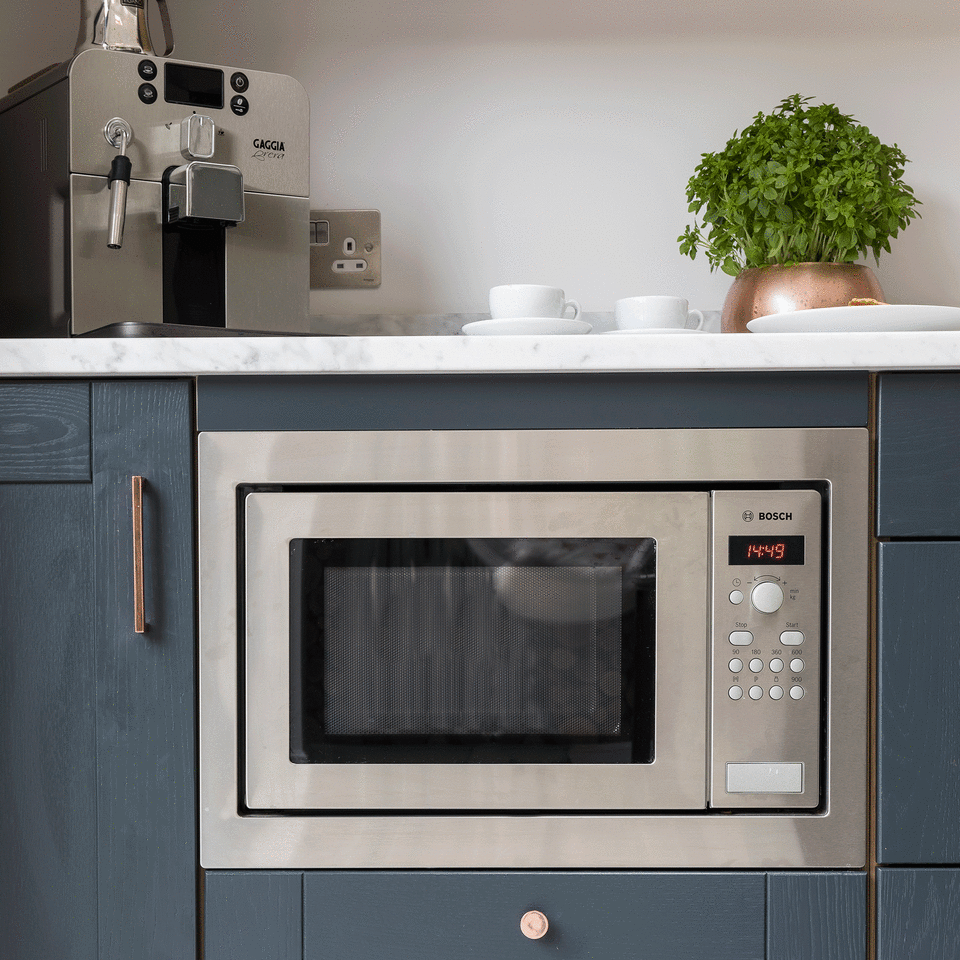
We've long heard about the benefits that is claimed apple cider vinegar (ABV) has on your health, but it's also something you might want to consider adding into your cleaning repertoire. Perhaps your Bragg's Orangic ACV really is something to, ahem, brag about...
'ABV is a favourite of mine that rarely lets me down,' says cleaning expert Emma. 'Compared to white vinegar, apple cider vinegar has a pleasant scent, making it ideal for cleaning kitchen appliances, such as coffee makers, toasters, and microwaves.'
'Antibacterial properties make apple cider vinegar an ideal all-purpose cleaner,' agrees Nigel from Daily Poppins. 'Mix equal parts of apple cider vinegar and water to make a cleaner that you can use to clean drains, hard water stains, countertops, stovetops, microwaves, and more. Mildew and soap scum can be tackled with apple cider vinegar's acidity. Apple cider vinegar can also be used to clean toilets and unclog drains by adding additional baking soda to create a cleaning reaction.'
It does come at a – literal – price, however. 'It is more expensive than white vinegar so I wouldn’t recommend this as a cleaning staple unless you’re especially sensitive to the smell of vinegar,' warns Laura from Seep.
Red wine vinegar
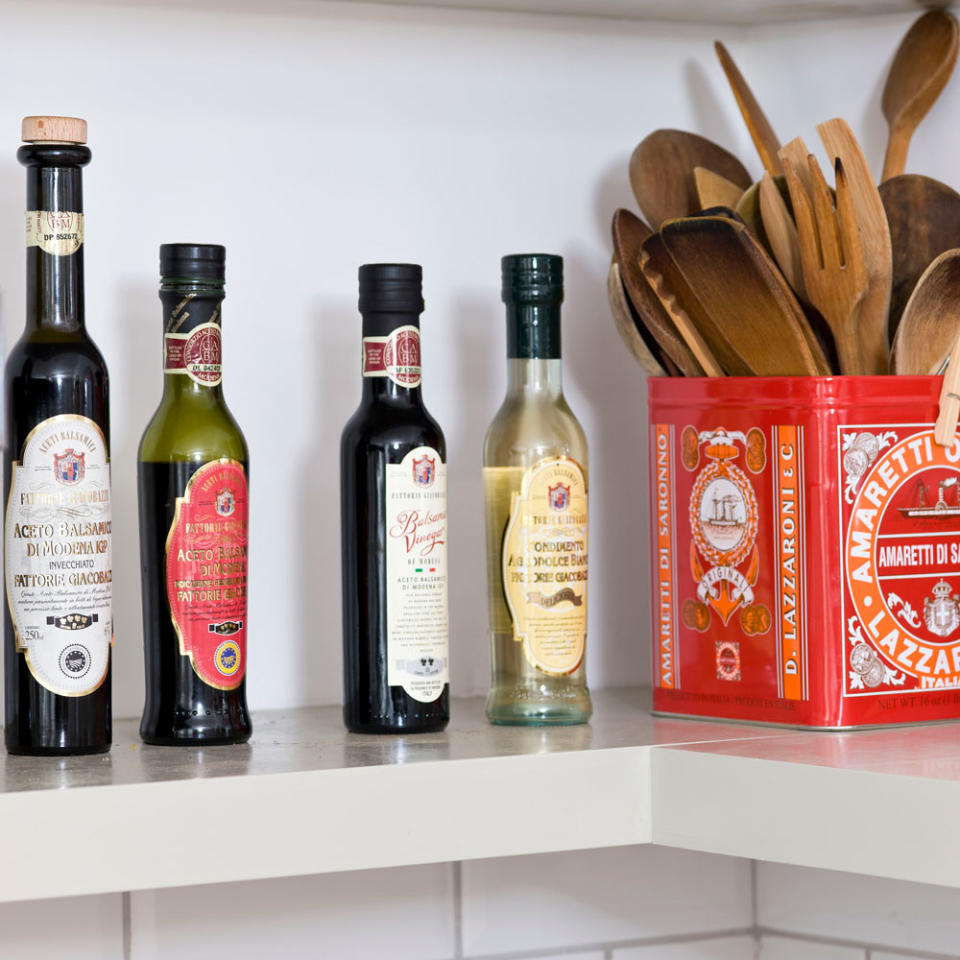
When choosing what vinegar to use for cleaning, it would be natural to veer towards the clearer types. Surely red wine vinegar couldn't work as well as its paler counterparts? Well, you might be surprised.
'Similarly to white wine vinegar, red wine vinegar can also be used as a cleaning product that has a multitude of uses,' says Nigel from Daily Poppins. 'As this product is already a staple in many households, it makes it the perfect emergency cleaner in the event of an urgent cleaning situation that arises in your home.'
'As it is composed of acetic acid, red wine vinegar has the classic sour taste, and it also has the strength to dissolve and dissolve any dirt, grease, and bacteria that is in your home.'
'The best way to clean your toilet bowl naturally is to use red wine vinegar in the same way that you would use any other type of vinegar, as it contains no chemicals. Baking soda and vinegar together create a chemical reaction that leaves the toilet bowl squeaky clean. Fill a bowl with equal parts vinegar and sodium bicarbonate and leave it for 15-20 minutes. Following that, use a toilet brush to scrub the toilet, followed by a flush.'
However, we'd be remiss not to remind you of its failings. 'The problem is its colour as it could stain kitchen surfaces such as granite, Corian, concrete or stone and any pale coloured areas or woods are also at risk,' points out Laura from Seep.
'It works well for windows and fixtures such as taps but I would recommend white vinegar as a safer, cheaper option and only consider using red wine vinegar as a last resort.'
Rice vinegar

Chances are, you haven't been grabbing rice vinegar for cleaning. The name brand you'll be most familiar with is the Amoy White Rice Vinegar, which is most commonly used in making sushi, but can also be found in some sauces and dressings. Because of its higher price point than other types of vinegar, it probably wouldn't have occurred to you to use it in cleaning. But could you, in a pinch?
'Rice vinegar could be used instead of white vinegar. It has the same levels of acidity as white vinegar, meaning it’s anti bacterial and cuts through grease and grime,' adds Laura from Seep. So what could we use it on then, in that case?
'Rice vinegar, like apple cider vinegar, has a milder scent and can be used for various cleaning purposes,' notes Baqir Khan, cleaning expert and owner of Proactive Cleaners. 'It's particularly useful for cleaning glass, as it leaves fewer streaks and smudges when properly diluted.'
'Make a spray bottle of rice vinegar and water and use it to clean countertops and sinks,' suggests Nigel from Daily Poppins. 'A bucket of water can also be mixed with a few capfuls of rice vinegar when you are mopping the floors.'
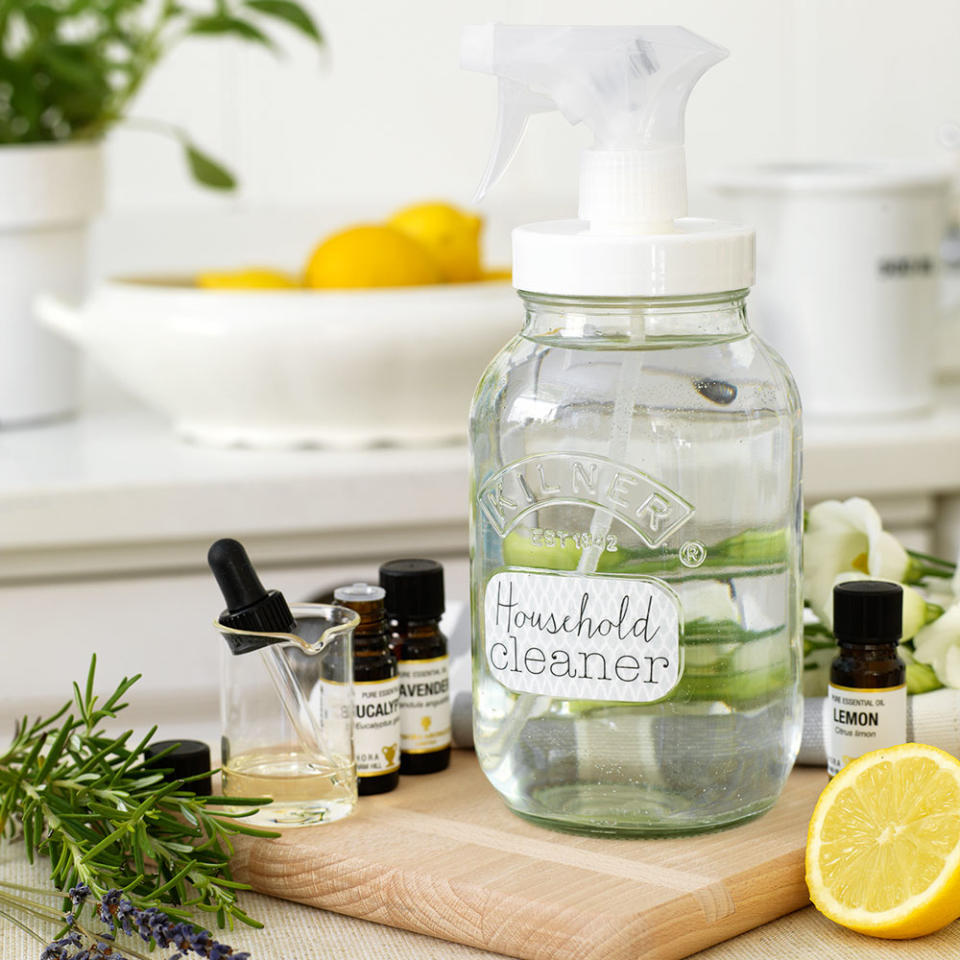
What vinegar is best for cleaning?
Although most vinegars can be used for cleaning in one way or another, there's one which is head and shoulders above the rest - white vinegar.
'White vinegar is the best type to use for cleaning as it has a powerful acidity that makes it truly multi purpose,' explains cleaning expert Laura. 'It acts as a natural disinfectant and it’s best used as a cleaning product for general dirt, grease and grime.'
'White vinegar is a very effective DIY cleaning product and a useful alternative to cleaning solutions when cleaning certain household appliances,' adds Andrea Pesce, appliance expert at Domestic & General. 'Other types of vinegar work in a similar way, however, white vinegar is the best for cleaning purposes as it doesn’t cause any dark stains.'
What is white vinegar best for cleaning?
Since white vinegar is the all-round winner, it's good to have a list of what you could use this product on. Andddd it's a long list.
There are so many things that you can clean,' explains Nigel from Daily Poppins. 'No matter where in your home you are, whether it be your kitchen, your bathroom, or your general living area. It can even be used in your garden if you so wish.'
'Clean your washing machine and soften your clothes by using vinegar in the laundry,' Nigel continues. 'Even laundry stains can be removed with it. White vinegar is also great for removing mineral deposits from glass - like those found on shower screens. Vinegar even works as a descaler for irons.'
'One key appliance that can benefit from a homemade vinegar and baking soda solution is the oven,' adds Andrea from Domestic & General. 'Chemical oven cleaners can sometimes be too strong and abrasive, resulting in cracks in the glass door. Instead, vinegar can be a safer option, allowing you to get a sparkly finish without resulting in the need for an oven repair.'

